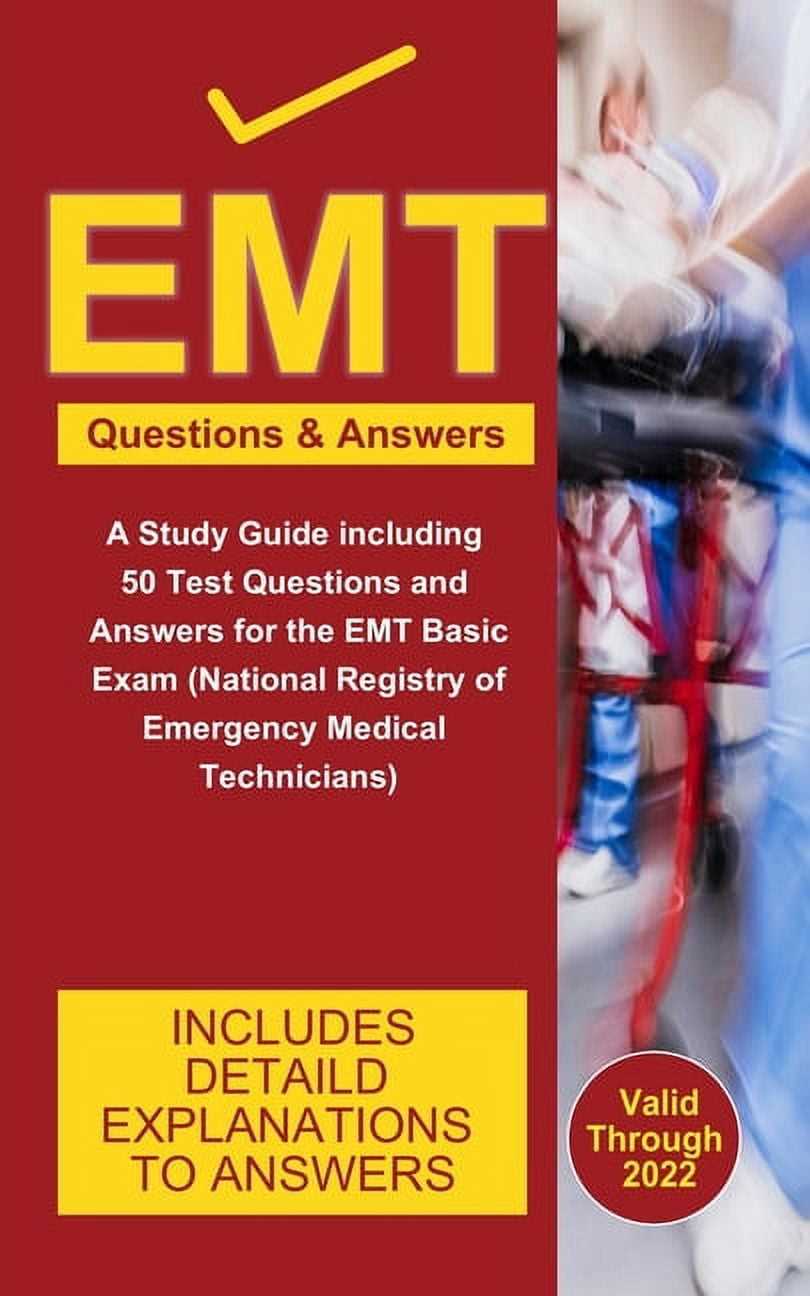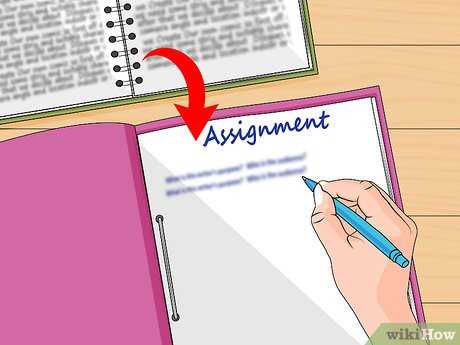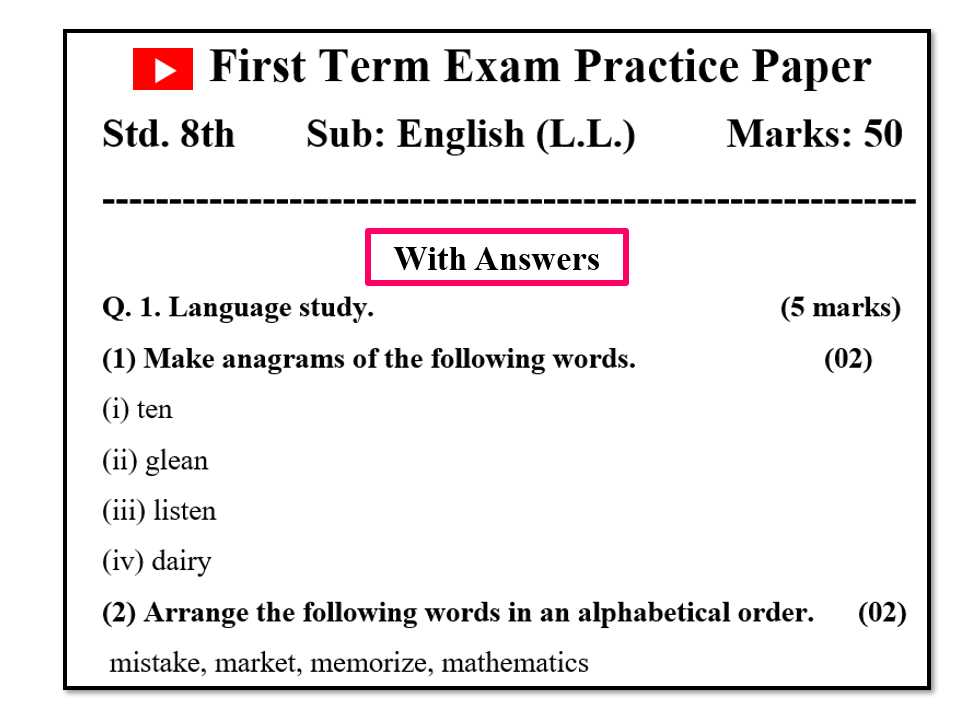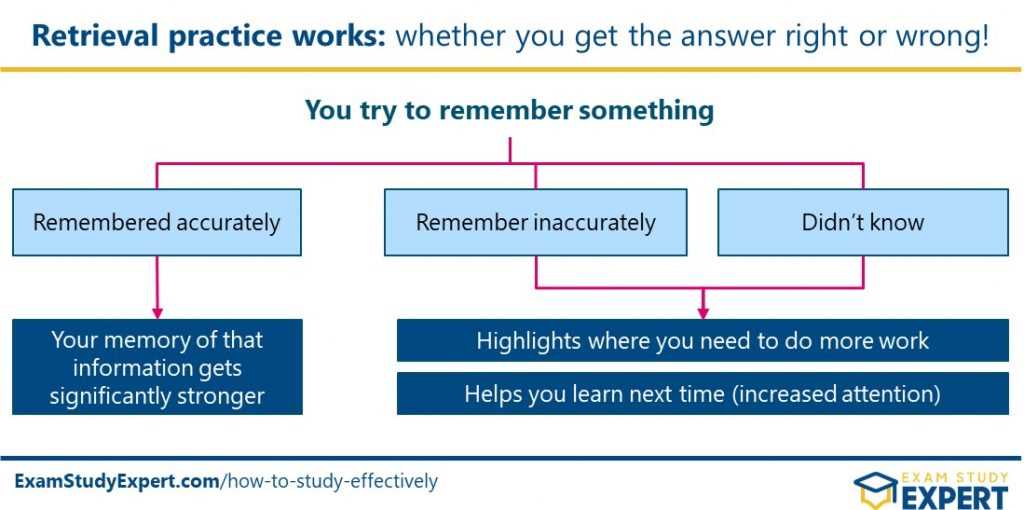
Mastering complex material requires more than just passive reading. To achieve lasting retention, it’s crucial to employ techniques that engage both your mind and memory. Whether it’s for academic purposes or professional development, strengthening recall abilities can significantly improve performance.
Various methods can be employed to boost your ability to retain and recall crucial details. Through consistent practice and strategic approaches, information that once seemed overwhelming can be stored efficiently in your long-term memory. Adopting active learning practices, coupled with smart study routines, helps you retain knowledge more effectively.
In this guide, we’ll explore a range of techniques that can support you in organizing and remembering essential concepts. From scientific methods to everyday tricks, you can discover how to enhance your study habits and maximize your learning potential.
Techniques to Retain Key Information Effectively
Retaining essential material requires more than just reviewing notes passively. Successful memorization is a dynamic process that involves actively engaging with the content and reinforcing it through repetition and association. With the right approach, even the most difficult subjects can become manageable and easy to recall when needed.
One of the most effective methods to retain knowledge is through active recall. This technique involves testing yourself on the material rather than simply re-reading it. By repeatedly attempting to retrieve information from memory, you reinforce neural connections, making it easier to remember later. Combining this with spaced repetition ensures that you review the material at increasing intervals, which has been shown to enhance long-term retention.
Another valuable strategy is creating mnemonics or memory aids. These can be acronyms, rhymes, or visual associations that link new information to something familiar. For instance, turning a list of key concepts into a memorable phrase or image can make recalling the details much easier.
Consistency is also key. Setting aside dedicated time each day for focused review, rather than cramming the night before, gives your brain time to consolidate the information. This gradual process allows you to build a deeper understanding and stronger recall abilities.
Understanding Your Learning Style
Each individual processes and retains information differently. Recognizing your unique learning preferences can dramatically enhance your ability to grasp and retain important material. By identifying how you best absorb knowledge, you can tailor your study methods to be more efficient and effective.
There are several common learning styles, such as visual, auditory, and kinesthetic. Visual learners benefit from seeing material presented through charts, diagrams, and written notes. Auditory learners excel when they hear information, whether through lectures or verbal repetition. Kinesthetic learners, on the other hand, retain information more effectively when they engage in hands-on activities or physical movement.
To maximize your learning potential, consider experimenting with different approaches. For example, if you are a visual learner, try using color-coded notes or mind maps to organize information. Auditory learners might find it helpful to record themselves reading key points and listen to the recordings while on the move. Kinesthetic learners could benefit from interactive study tools or teaching concepts through physical demonstration.
By aligning your study habits with your natural learning preferences, you can enhance your ability to retain and recall material, making your preparation more effective and less stressful.
Effective Study Techniques for Retention
Retaining information over the long term requires more than simply reviewing materials. It involves using strategies that actively engage your mind and reinforce what you’ve learned. When you use the right techniques, you can improve both recall and understanding, ensuring that you perform better when it matters most.
Active Recall and Practice Testing
One of the most powerful methods for retention is actively testing yourself on the material. Rather than passively reading your notes, attempt to recall key concepts without looking at them. This process strengthens neural connections and improves memory recall.
- Use flashcards with questions on one side and answers on the other.
- Write down everything you remember from memory before checking your notes.
- Take practice tests to simulate the conditions of the real task.
Spaced Repetition
Spaced repetition is another highly effective technique. By reviewing information at increasingly longer intervals, you give your brain the opportunity to consolidate and reinforce knowledge over time.
- Review material after a few hours, then again the next day, then after a week.
- Use apps or tools that automatically schedule spaced reviews for you.
- Focus on areas that you find more challenging, ensuring regular practice.
Combining these techniques creates a study routine that promotes better retention, reduces cognitive overload, and helps you keep track of what you know and what still needs work.
Importance of Consistent Review Sessions
Regularly revisiting the material you’ve studied is a key element in strengthening memory and enhancing understanding. Continuous reinforcement helps to solidify information, making it easier to recall when necessary. Without periodic review, the brain tends to forget details over time, especially if they’re not actively used or revisited.
By incorporating brief but consistent review sessions into your study routine, you ensure that knowledge stays fresh and accessible. This approach prevents the buildup of gaps in memory and improves the retention of complex concepts. Additionally, frequent reviews allow you to identify areas that may need more attention and give you the opportunity to address them before they become problematic.
Whether it’s revisiting notes every few days or conducting self-assessments, maintaining a steady review schedule is one of the most effective ways to ensure that you’ve internalized important information. With this practice, your recall becomes more accurate, and you’ll be better prepared to handle challenging situations when they arise.
Using Mnemonics to Enhance Memory
Mnemonics are powerful tools that can significantly improve your ability to recall complex information. By creating associations between unfamiliar material and something easier to remember, you can simplify the process of retaining details. These memory aids make the material more accessible, often by linking new concepts to familiar ideas or patterns.
Types of Mnemonics
There are several types of mnemonic devices that can be employed to make learning easier. Some common types include:
- Acronyms – Using the first letter of each word to form a new word or phrase (e.g., “PEMDAS” for the order of operations in math: Parentheses, Exponents, Multiplication, Division, Addition, Subtraction).
- Rhymes and Songs – Turning information into a catchy rhyme or song to make it more memorable.
- Chunking – Breaking down long sequences of information into smaller, more manageable parts (e.g., phone numbers).
Creating Your Own Mnemonics
To create effective mnemonics, it’s important to personalize them to your preferences. For example, you might create a vivid mental image or a silly sentence that makes sense to you personally. The more engaging and creative the mnemonic, the easier it will be to remember.
By incorporating these strategies into your study routine, you can boost retention and make even the most challenging subjects easier to learn.
Visualizing Information for Better Recall
Visualizing information is a powerful technique that helps to improve memory retention by creating mental images of the material you are trying to remember. When you form clear, vivid pictures in your mind, the brain is better able to organize and retrieve those images when needed. This method takes advantage of the brain’s natural ability to remember visuals more easily than abstract data.
Using Diagrams and Mind Maps
One of the most effective ways to visualize complex concepts is by creating diagrams or mind maps. These tools allow you to organize information hierarchically, showing connections between ideas. By turning abstract data into a visual format, it becomes easier to understand relationships and recall key points.
- Create flowcharts to depict processes or sequences.
- Use Venn diagrams to compare and contrast ideas.
- Draw timelines for historical events or chronologies.
Creating Mental Imagery
Another method involves building mental images related to the material. Associating facts with memorable pictures or even stories can make the information more concrete and easier to recall. For example, visualizing the key points of a topic as objects in a familiar room can help you navigate through the material during recall.
By incorporating these visual techniques into your study habits, you can make even the most challenging material more accessible and enhance your ability to remember key concepts when needed.
Chunking: Breaking Information into Parts

Breaking down complex material into smaller, more manageable segments is an effective technique for improving recall. This method takes advantage of the brain’s natural ability to handle limited amounts of information at once, making it easier to process and remember large quantities of data. By organizing content into logical “chunks,” you reduce cognitive overload and enhance retention.
Chunking involves grouping related pieces of information together based on patterns or similarities. This approach can be applied to numbers, words, or concepts, helping you organize the material in a way that is easier to retain and retrieve. For example, remembering a long string of numbers like 123456789 can be simplified into smaller groups like 123, 456, and 789.
Incorporating chunking into your study routine allows you to break down large amounts of information into digestible parts, making it easier to focus on one segment at a time and gradually build up your knowledge. This technique not only makes the material less overwhelming but also improves the efficiency of your study sessions.
Active Recall: Key to Retention

Actively retrieving information from memory is one of the most effective strategies for long-term retention. Instead of passively reviewing notes, this method involves testing yourself on the material, which strengthens neural connections and enhances the ability to recall key details when needed. The act of actively recalling information has been shown to solidify what you’ve learned and reinforce your understanding.
By regularly practicing active recall, you encourage your brain to make stronger connections between concepts. This approach helps you identify gaps in your knowledge, allowing you to focus on areas that need more attention. Additionally, actively engaging with the material prevents cramming and promotes a deeper understanding of the content.
Incorporating self-testing into your study routine–whether through flashcards, practice questions, or verbal quizzes–can dramatically improve both recall and comprehension. This technique ensures that information is stored more effectively, making it easier to access during high-pressure situations.
Spaced Repetition and Memory Boost
Spaced repetition is a technique that involves revisiting material at increasing intervals, allowing the brain to consolidate information over time. By spacing out your reviews, you take advantage of the brain’s natural ability to retain information more effectively when it’s encountered periodically. This method not only strengthens memory but also minimizes the likelihood of forgetting important details.
The Science Behind Spaced Repetition
Research has shown that reviewing information at spaced intervals helps to move it from short-term to long-term memory. The intervals between reviews become longer as the material is better understood, creating a reinforcing cycle that ensures stronger retention. This technique takes advantage of the brain’s forgetting curve, allowing you to revisit material just before you might forget it, reinforcing the memory and making it easier to recall in the future.
How to Implement Spaced Repetition
To apply spaced repetition in your studies, break the material into smaller chunks and review it regularly. Start by reviewing the information shortly after you first encounter it, then gradually extend the intervals between reviews as you become more familiar with it. There are various apps and tools designed to help automate this process, making it easier to incorporate spaced repetition into your study routine.
Using this method consistently can lead to a significant improvement in both recall and understanding, ensuring that key information stays accessible even after extended periods of time. This technique is a proven way to boost memory retention and help you retain complex material in the long run.
Creating Flashcards for Quick Review
Flashcards are a powerful tool for reinforcing key concepts and testing your knowledge quickly. They allow you to break down complex information into bite-sized pieces, making it easier to review and retain material. By actively engaging with the material through flashcards, you strengthen recall and improve understanding, making this method especially effective for rapid reviews.
Designing Effective Flashcards
To create effective flashcards, focus on one concept per card. Write a question or prompt on one side and the corresponding answer or explanation on the other. Keep the content brief, and ensure that each card covers a single idea or fact. This ensures that you can review efficiently without being overwhelmed by excessive information.
- Use simple, clear language to make the material easy to understand.
- Include visual aids like diagrams or images to enhance retention.
- Group related concepts together for more effective learning.
Leveraging Technology for Flashcards
In addition to traditional paper flashcards, there are many apps available that allow you to create digital flashcards. These apps often incorporate spaced repetition algorithms to help you review at optimal intervals, further enhancing the effectiveness of the technique. Whether physical or digital, flashcards are a convenient and versatile way to reinforce your knowledge and boost memory retention.
Teaching What You Learn to Others
One of the most effective ways to solidify knowledge is by teaching it to someone else. When you explain concepts to others, you are forced to articulate and organize your understanding in a clear and logical manner. This process helps reinforce what you know and highlights any gaps in your knowledge. Teaching also strengthens your ability to recall and apply information when needed.
By sharing what you’ve learned, you not only reinforce your memory but also gain a deeper understanding of the material. This technique encourages active engagement with the content, which significantly improves long-term retention.
Benefits of Teaching Others
- Clarifies concepts: Explaining material in your own words forces you to break it down into simpler parts, enhancing your comprehension.
- Identifies gaps: When teaching, you may realize areas where you need more understanding or practice.
- Improves recall: The more you teach, the better you become at recalling information and applying it to different scenarios.
Ways to Teach What You’ve Learned
- Study groups: Join or create a group where you can explain concepts to each other.
- Teach a friend or family member: Take the time to explain what you’ve learned to someone who is unfamiliar with the topic.
- Record yourself: Teach a lesson aloud and listen back to identify areas that need more clarification.
By incorporating teaching into your study routine, you can not only reinforce what you’ve learned but also gain confidence in your ability to recall and use the information effectively.
Optimal Environment for Effective Study

The environment in which you study plays a critical role in the effectiveness of your learning. A well-organized, quiet, and comfortable space can help minimize distractions and promote concentration. Creating an atmosphere conducive to focus ensures that you can retain and understand information more efficiently. Whether at home, in a library, or a quiet café, setting up the right environment can significantly enhance your ability to absorb material and stay motivated.
Key Elements of a Productive Study Space
To maximize your productivity, consider the following factors when selecting or setting up your study area:
| Element | Importance |
|---|---|
| Lighting | Proper lighting prevents eye strain and helps you stay alert during long study sessions. |
| Comfortable Seating | Comfortable seating reduces physical discomfort and allows you to focus for longer periods. |
| Minimal Distractions | Fewer distractions improve concentration and prevent interruptions, making study time more efficient. |
| Organization | A tidy workspace reduces stress and improves your ability to locate materials when needed. |
Creating a Distraction-Free Zone
To ensure you remain focused, eliminate potential distractions from your study space. This might mean turning off your phone, limiting internet access, or using noise-canceling headphones if you’re in a noisy environment. By creating a zone dedicated solely to studying, you signal to your brain that it’s time to focus and absorb information effectively.
In addition to minimizing distractions, it’s important to set clear study goals. A defined space paired with specific objectives makes it easier to track progress and stay motivated during your study sessions.
Nutrition and Sleep for Memory Power
Adequate nutrition and sleep are crucial components that support brain function and cognitive performance. What you eat and how well you rest directly influence the efficiency of your memory and learning abilities. Consuming a balanced diet rich in nutrients and ensuring proper sleep patterns help to enhance focus, retention, and recall, allowing you to perform better during study sessions and assessments.
Foods That Boost Brain Function

Certain foods are known to nourish the brain and improve cognitive functions. Incorporating the following items into your diet can help maintain and boost memory power:
| Food | Benefit |
|---|---|
| Blueberries | Rich in antioxidants, they improve communication between brain cells and boost memory retention. |
| Leafy Greens | Packed with vitamins and minerals, they support brain health and improve cognitive performance. |
| Nuts and Seeds | High in omega-3 fatty acids, they help improve memory, focus, and overall brain function. |
| Salmon | Loaded with omega-3s, it enhances brain structure and supports memory retention. |
Sleep and Its Role in Cognitive Function
Sleep plays a vital role in memory consolidation, where the brain processes and organizes new information. During deep sleep stages, neural connections are strengthened, improving the ability to recall details when needed. Inadequate rest can lead to cognitive fatigue, reduced focus, and impaired memory. Ensuring you get enough quality sleep each night is essential for effective learning and mental clarity.
Both nutrition and sleep work together to optimize brain function, helping to enhance memory retention and overall cognitive performance. A balanced approach to both will set a solid foundation for long-term memory enhancement.
Using Technology for Smart Studying
In today’s digital age, technology offers numerous tools to enhance learning and improve efficiency. With the right apps, platforms, and digital resources, you can streamline your study routine, organize your material, and optimize your memory retention. These tools provide interactive, personalized methods that go beyond traditional study techniques, allowing you to tailor your approach and achieve better results.
Essential Study Tools
Technology can support various aspects of your learning process, from organizing notes to practicing recall. Here are some tools that can help:
- Flashcard Apps – Digital flashcards allow for quick, on-the-go review. Platforms like Anki or Quizlet let you create custom sets and use spaced repetition to reinforce learning.
- Mind Mapping Software – Tools like MindMeister and XMind help visualize complex information, making it easier to understand and remember key concepts.
- Note-Taking Apps – Evernote and Notion are perfect for organizing notes and keeping track of study materials in one place.
- Online Practice Tests – Websites offering practice exams or quizzes help you simulate real test conditions and assess your readiness.
Advantages of Digital Learning
Using technology to study offers several benefits that traditional methods cannot provide:
- Accessibility – With digital tools, study materials are available anytime, anywhere, making it easier to learn at your convenience.
- Personalization – Technology allows you to customize your study plan based on your strengths and weaknesses, ensuring that you focus on areas that need the most attention.
- Interactive Learning – Apps that offer interactive features like quizzes, games, and flashcards enhance engagement and make studying more enjoyable.
- Progress Tracking – Many platforms track your performance, helping you stay motivated by showing improvements and identifying areas that require more focus.
By integrating technology into your study routine, you can create a more efficient and dynamic approach to learning. With the right tools, you can stay organized, motivated, and well-prepared for any challenge.
Managing Stress for Better Focus
Stress can significantly impair your ability to concentrate and retain information. When pressure builds up, it becomes harder to focus on tasks, leading to decreased productivity. Learning how to manage stress effectively can improve your mental clarity, increase your performance, and help you stay on track with your goals. By using the right techniques, you can minimize anxiety and create a calm, productive environment that enhances your ability to process and recall information.
One of the most important steps in managing stress is recognizing the signs early and applying strategies that help relax both the body and the mind. When you feel overwhelmed, taking a step back and practicing mindful techniques can bring you back to a state of calm and focus.
Practical Techniques to Reduce Stress

Here are some practical methods that can help you manage stress and maintain a high level of concentration:
- Breathing Exercises: Deep breathing helps reduce anxiety and increase oxygen flow to the brain, which aids in focus and mental clarity.
- Physical Activity: Regular exercise can reduce stress hormones and increase endorphins, improving mood and boosting cognitive function.
- Mindfulness and Meditation: Practicing mindfulness through meditation can clear your mind, enhance focus, and help you stay present during study sessions.
- Breaks and Downtime: Avoid long periods of continuous study. Take short breaks to recharge your mind and avoid burnout.
Creating a Relaxed Study Environment
In addition to personal techniques, creating a calm study space is essential for reducing distractions and lowering stress levels. A clutter-free, quiet, and comfortable environment can help you stay focused and improve your efficiency. Consider the following tips:
- Organize Your Study Area: Keep your desk tidy and remove unnecessary distractions like your phone or loud noises.
- Set a Routine: Establish a study schedule to avoid last-minute cramming, which can increase stress.
- Use Relaxing Music: Some people find that low-volume instrumental music or nature sounds help them concentrate and feel at ease while studying.
By managing stress effectively, you will be able to perform at your best and retain information more efficiently, setting yourself up for success in any challenge ahead.
Time Management During Exam Preparation
Effective time management is essential when preparing for any significant assessment. With limited time and a vast amount of material to cover, organizing your schedule and prioritizing tasks can make a significant difference in performance. The key to managing time efficiently is to break down your tasks, set clear goals, and maintain a steady pace throughout the preparation period.
By creating a well-structured plan, you can ensure that each topic receives adequate attention while also allowing time for review and practice. Avoid procrastination and focus on maintaining a balance between study sessions and relaxation to prevent burnout.
Steps to Manage Time Effectively
Follow these steps to improve your time management during the preparation phase:
- Set Clear Goals: Define specific goals for each study session, whether it’s mastering a particular concept or reviewing a certain number of pages.
- Create a Schedule: Develop a study timetable that allocates time for each subject based on its difficulty and importance.
- Prioritize Tasks: Identify key areas where you need the most improvement and prioritize these subjects to ensure focused study time.
- Avoid Multitasking: Focus on one task at a time to improve the quality of your work and avoid distractions.
Building a Productive Routine
Consistency is crucial to maintaining momentum. Establishing a daily routine with designated study times will help you stay on track and minimize last-minute cramming. Ensure that you are realistic with your goals and allow time for breaks to recharge.
- Plan Breaks: Take short breaks after every 45-60 minutes of study to refresh your mind and maintain concentration.
- Track Your Progress: Regularly assess how much you’ve covered and adjust your schedule if necessary to stay on track.
- Stay Flexible: Life can be unpredictable, so remain adaptable and adjust your plan when unforeseen events occur.
By managing your time wisely, you will reduce stress, boost your productivity, and increase your chances of achieving success when the time comes.
Building Confidence with Practice Tests

One of the most effective methods to boost your self-assurance before any assessment is by regularly taking mock exams. Simulating the actual testing environment allows you to assess your knowledge, improve time management skills, and identify areas that need further review. It is not only about reinforcing information but also about gaining a sense of control over the process.
By incorporating practice tests into your routine, you can become familiar with the format and structure of the test, which helps reduce anxiety. Additionally, the more you practice, the better you become at recalling important details under pressure, ultimately building your confidence.
Why Practice Tests Work
Mock exams provide several benefits that contribute to a more effective preparation strategy:
- Reinforces Knowledge: Testing yourself regularly helps solidify information in your long-term memory.
- Improves Time Management: Practice tests allow you to refine your pacing, ensuring you can complete all questions within the time limits.
- Identifies Weaknesses: By reviewing your mistakes, you can focus on areas that require more attention.
- Reduces Anxiety: Familiarity with the test format makes it less intimidating, giving you more confidence when the real test arrives.
How to Use Practice Tests Effectively
Simply taking a practice test isn’t enough; there are strategies to maximize its benefits:
- Simulate Real Conditions: Take the test in a quiet, timed environment to mirror the conditions you will face during the actual assessment.
- Review Mistakes: After completing a test, carefully go through the questions you got wrong and understand why you missed them.
- Track Progress: Record your performance over time to see how you’re improving and where you need to focus more.
- Take Multiple Tests: Consistent practice is key. Take different mock tests to get exposed to various question types and formats.
With each practice session, you will find that your ability to recall information improves, and your self-confidence grows. Ultimately, the more prepared you feel, the better you will perform when it counts the most.